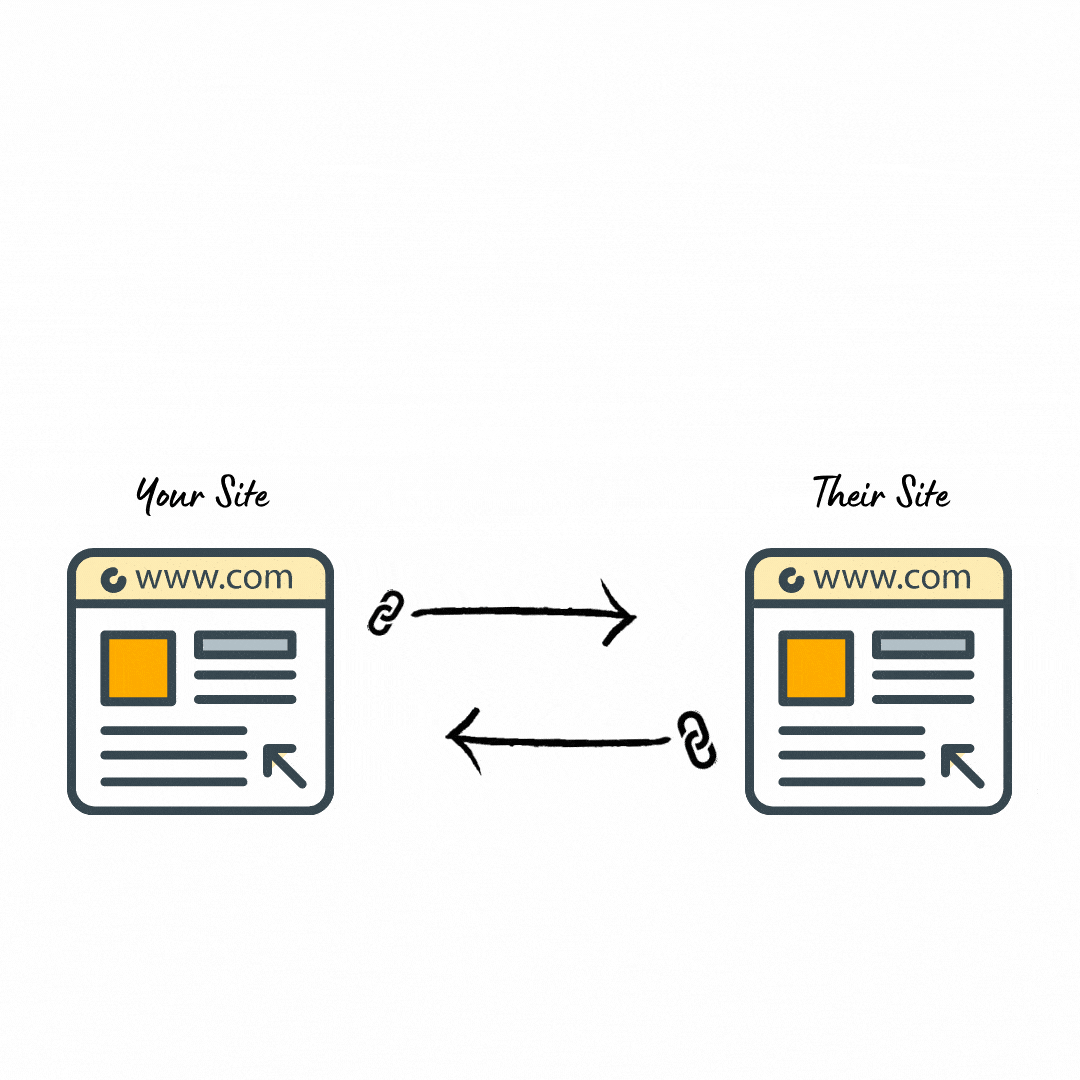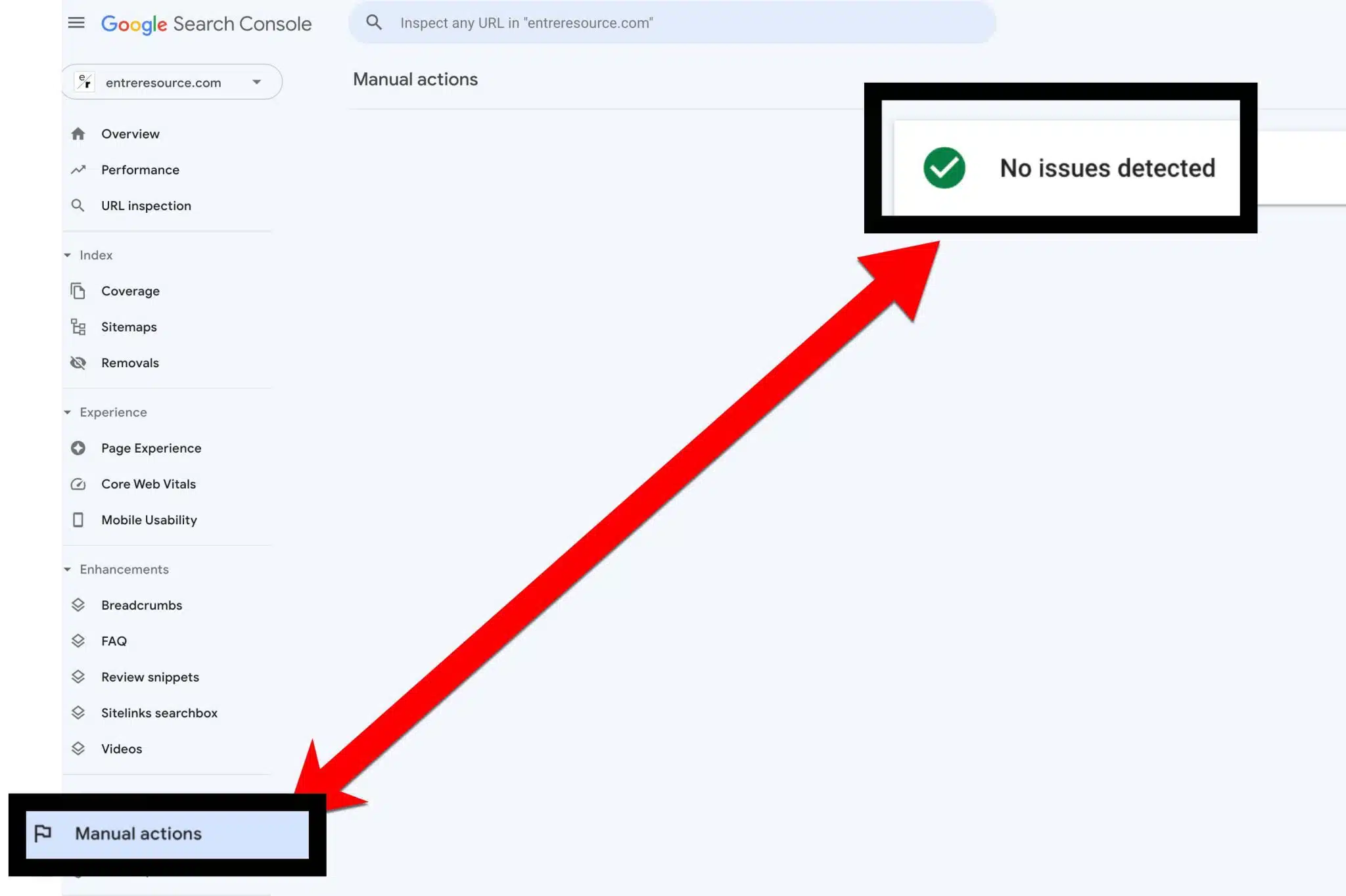The 3 way link exchange (also referred to as ABC link swaps or ABC linking) is one of the worst kept secrets in the SEO space. Although they are a black hat tactic in the eyes of Google, countless websites leverage this approach and increase their traffic while going completely undetected.
It's no wonder why so many people are willing to take the risk either. Do a quick window shopping trip online and see how much a do-follow link from a DR40 site costs. Then check DR 70+... Some people charge upwards of $400 for a link of that size (and they get more orders than they can handle).
Before I explain what the 3 way link exchange is, I need to explain how and why it evolved from the much simpler A-B direct link swap.
The Problem with Direct Link Swaps
If your outreach strategy is to email the owner of a high DA (domain authority) website to "exchange" links with you directly, they will either not reply or laugh at you and not reply.
Ok, when I get these I actually link to an article that explains why direct link swapping isn't ok...
The request looks something like this...
"If you link to mycoolsite.com (site A) from theircoolsite.com (site B), I'll link to theircoolsite.com (site B) from mycoolsite.com (site A)."
More simply, "If you link to me and I'll link to you."
I call it "quid pro quo SEO" (very proud of that phrase by the way, feel free to make it catch on).
The concept seems like it would be awesome on paper, but Google understands that it is an existential threat to how they rank pages. If they allowed direct link exchanges, the value of links would slowly be reduced to nothing.

As we say in the business, "marketers ruin everything." When it comes to ranking websites, SEO "experts" arguably ruin even more.
Deeper Dive Question You Might Ask...
"But isn't it inevitable that big sites would link to back and forth to each other organically? For example, surely ESPN.com and MLB.com have both linked to each other many times. Is this penalized?"
This was a question I had when I first researched the legitimacy of link exchanges. I assumed that the ability to penalize sites for doing it would be nearly impossible, since there were countless legitimate, coincidental link exchanges that happened organically every day.
According to AHREFs, 43% of all links online were technically reciprocal links. Clearly, 43% of websites don't receive manual penalties for having reciprocal links.
The answer isn't that Google doesn't notice; it's that their algorithm is extremely intelligent, and it's able to detect natural links from unnatural ones with impressive accuracy.
So ESPN.com linking to MLB.com isn't going to sound alarm bells like mycoolsite.com linking directly to yourcoolsite.com at the exact same time would.
What Is a 3 Way Link Exchange
So, with direct link swaps being a no-go, link builders created a workaround.
The process introduces a 3rd website to the exchange and prevents any of the sites from actually linking back to each other.
Here is a diagram of what a 3 way link exchange would look like if someone approached you with the proposal.

Site A links to Site B and Site B links to Site C. There is no "crossing of streams" as we say in the men's bathroom.
Now, here's what the 3 way link exchange would look like if you approached someone with the proposal.

What makes this work is having access to multiple high DA (domain authority) websites. This is because search engines like Google and Bing give better link juice to your site when it backlinks from high DA sites. So, before reaching relevant sites, you should check their DA with the help of a DA PA Checker. It will provide you reports about different essences of sites like DA, PA (page authority), Spam Score, etc. Doing so will help you reach authority-rich and credible sites for backlinks. This is why the "rich get richer" in the world of SEO. They are able to leverage their highly authoritative sites to barter links from other highly authoritative sites. This helps both sites grow. (If your interested in growing your website via backlinks, you might check out a platform like linkhouse.)
That is of course, unless they get caught by Google, and they decide that the links weren't legitimately beneficial to the reader.
What Does Google Say about 3 Way Link Exchanges?
Google considers any behavior that manipulates links to your site or the sites of people you work with as "link schemes" as violations of their webmaster guidelines.
Although the 3 way link swap is far more inconspicuous than the direct link swap, it is technically still just as much of a violation as a direct link swap.
For that reason, I cannot in good conscious recommend that any of my followers pursue this sort of link building structure. Yes, even though I know that many massive sites are getting away with it and even though the risks of getting caught seem to be quite low.
Of course, it's not as if violating Google's webmaster guidelines are the same thing as breaking the law. You're welcome to try link schemes, but just know that you're risking the long term health of your website. Being caught doing them can lead to manual penalties that can permanently stunt the organic reach and visibility of your website. Given these risks, many businesses opt to outsource link building to professionals who specialize in white hat strategies, ensuring compliance with Google's guidelines while still enhancing their SEO efforts.
Please don't take my word for it, go check out the Google Webmaster Guidelines here to ensure you stay up to date on what is and isn't allowed.
Is There a "White Hat" Way to Do Link Exhanges?
I'm going to go off script for one second here and share my personal opinion and it is in no way reflective of what Google has said themselves.
I have no problem with the occasional link exchange with partners that I actually know personally and work with professionally. As a blogger, I have a lot of connections with people I trust. The reason that Google loves backlinks so much for choosing how to rank content is that it shows who trusts your content.
So, me linking to a colleague or them linking to me is not something that I see an issue with. Again, that is my own opinion, but I would argue that case tooth and nail if Google ever penalized me for it.
The ways that people get caught and penalized for link exchange stem from rank manipulation that serves no value. Here are some red flags that would pose a high risk of penalization.
- Very high DR backlinks to brand new content that isn't ranking well. Most backlinks go to articles that rank in the top spots on Google. If you have an article that has absolutely no presence near the top of search engines, the odds of getting legitimate backlinks from high DR sites are slim to none without manipulation.
- A flood of high DR backlinks to one piece of content at the same time. Google understands what natural link building looks like. If you have an article that is a year old and has never gotten a link but one day collects 10 high DR links at the same time, you're asking for trouble.
- Consistent anchor text that seems out of context. For example, you get 20 backlinks to an article about hummingbird feeders with the anchor text "hummingbird feeders" in each. To analyze and monitor all anchor texts, you can use special SEO tools. For example, one of such tools is Link Extractor by Sitechecker.
- Links placed with no context or on articles that are completely unrelated to the topic. Links are added to content to improve it, not for the sake of it. If a link is added to a piece of content that clearly provides no additional value, it will be at high risk of penalization.
I'm not trying to show you how to "work around" the rules here. I just want to explain why people get caught and how Google can spot the cheaters.
How to Find Out If You've Been Caught Link Swapping
Ok, let's face it, many of you are here just to see if you're in trouble for having swapped links already The good news is that if you haven't noticed a huge dip in traffic, you probably haven't.
To make sure, simply navigate into Google Search console and scroll down to Security and Manual Actions. Then, click on Manual actions and you'll see if anything has been reported against you.
It will look like this...

Hopefully this helps! Now, go create some great content that people will link to naturally!



Hi Nate,I was recently approached for an ABC link building scheme and had my doubts… After reading this post, I decided to decline the offer. Don't want to take the risk. Thanks for your article!Vasco
In SEO, it’s usually better to be safe than sorry haha Probably a good call.